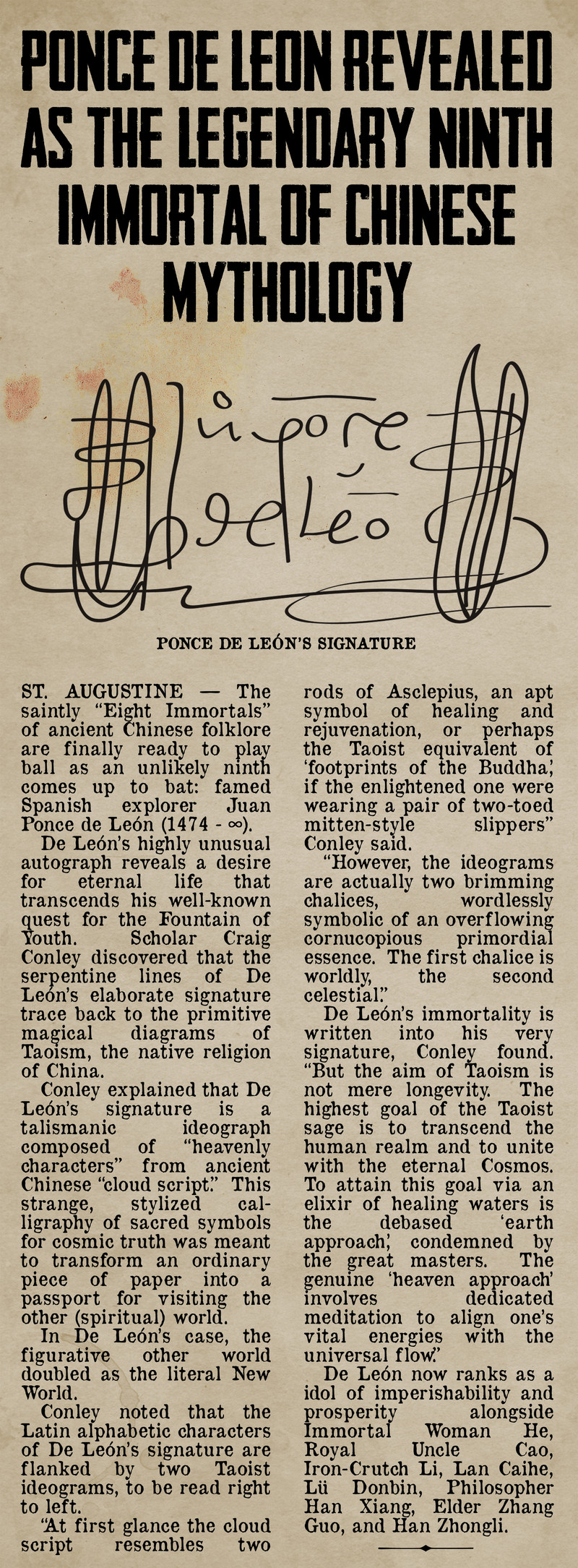Ponce de León Revealed as the Legendary "Ninth Immortal” of Chinese Mythology
St. Augustine, Florida - The saintly "Eight Immortals” of ancient Chinese folklore are finally ready to play ball as an unlikely ninth comes up to bat: famed Spanish explorer Juan Ponce de León (1474 - ∞).
De León’s highly unusual autograph reveals a desire for eternal life that transcends his well-known quest for the Fountain of Youth. The serpentine lines of his elaborate signature trace back to the primitive magical diagrams of Taoism, the native religion of China.
De León’s signature is a talismanic ideograph composed of "heavenly characters” from ancient Chinese "cloud script.” This strange, stylized calligraphy of sacred symbols for cosmic truth was meant to transform an ordinary piece of paper into a passport for visiting the other (spiritual) world. In De León’s case, the figurative other world doubled as the literal New World.
Note that the Latin alphabetic characters of De León’s signature are flanked by two Taoist ideograms, to be read right to left. At first glance the cloud script resembles two serpents winding around rods of Asclepius (an apt symbol of healing and rejuvenation) or perhaps the Taoist equivalent of "footprints of the Buddha” (if the enlightened one were wearing two-toed mitten-style slippers). However, the ideograms are actually two brimming chalices, wordlessly symbolic of an overflowing cornucopious primordial essence. The first chalice is worldly, the second celestial.
De León’s immortality is written into his very signature. But the aim of Taoism is not mere longevity. The highest goal of the Taoist sage is to transcend the human realm and to unite with the eternal Cosmos. To attain this goal via an elixir of healing waters is the debased "earth approach,” condemned by the great masters. The genuine "heaven approach” involves dedicated meditation to align one’s vital energies with the universal flow.
De León now ranks as a idol of imperishability and prosperity alongside Immortal Woman He, Royal Uncle Cao, Iron-Crutch Li, Lan Caihe, Lü Donbin, Philosopher Han Xiang, Elder Zhang Guo, and Han Zhongli.



